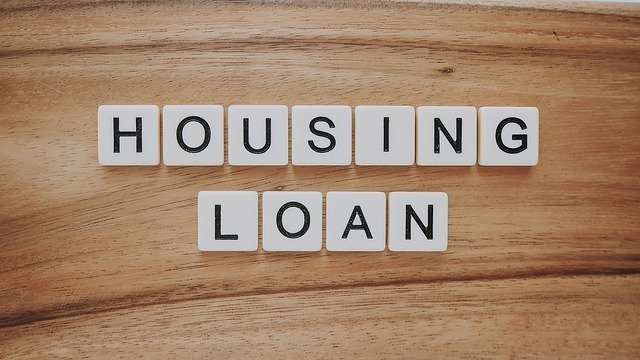Home ownership is a dream that many adults.To really know what goes into getting a mortgage financed, you need to understand the entire process. The tips here will go over some of the basics.
Prepare yourself for your mortgage well in advance.Get your budget completed and your financial documents in line before beginning your search for a home and home loan.You need to build up savings stockpile and reduce your debt. You may not be approved if you hold off too long.
You will be responsible for the down payment. While there used to be more options for loans without down payments, the industry standard now requires them for a greater number of mortgages. Ask what the minimum is before you submit your mortgage payment.
Pay down the debt that you already have and don’t get new debt when you start working with a mortgage. High levels of consumer debt could actually cause your application to be denied. Carrying some debt is going to cost you financially because your mortgage rate.
If you are unable to refinance your home, give it another try. The HARP has been revamped to let homeowners to refinance no matter what the situation. Speak with your mortgage lender to find out if this program would be of benefit to you. If your lender still refuses to cooperate with you, you can find a lender who is.
Research government programs that assist first time home buyers. These programs can help with the cost of closing, finding the best rates, and even assist in finding lenders that can help people with lower credit ratings.
Pay Stubs
Get your documents in order. Most lenders require the time of application. These documents include prior year tax returns, pay stubs, and recent pay stubs.The whole process will run more quickly and more smoothly when your documents ready.
Research the full property tax valuation history for any home you think about purchasing. It is wise to know the amount of your yearly taxes before you sign your mortgage papers at closing time. Sometimes property taxes are a lot higher than you may imagine at first. This can turn into a real surprise.
Make sure your credit history is in good order before applying for a mortgage. Lenders examine your personal credit history to make sure that you are not a bad risk. If your credit is poor, do everything possible to fix it to give your loan the best chance to be approved.
Make sure to see if your home or property has gone down in value before seeking a new loan. Even if your home is well-maintained, the lending institution might value it much differently, and that may hurt getting approved for the mortgage.
If you’ve been denied on a home loan, don’t give up. One denial isn’t the end of the road. Look into all of your borrowing options. Even if you need someone to help co-sign for you, you probably have options.
Make sure that you have all your personal financial documentation prior to meeting a home lender. The lender is going to need to see bank statements, banking statements, and other documentation of assets. Being prepared well in advance will help speed up the application process.

Make extra payments if you can with a 30 year term mortgage.The additional payment is going to go towards the principle.
Ask your friends for advice about getting a home mortgage. They may be able to provide you with some advice that you need to look out for. Some might have encountered shady players in the process and can help you avoid them. When you talk to more people, you’re going to learn more.
Try to have balances below 50 percent of the credit limit you’re working with. If you are able to, try to get those balances at 30 percent or less.
Determine what sort of mortgage you need. There is more than one kind of home loans. Knowing about different loan types can help you make the best decision for you. Speak to as many home lenders as possible to find out what all of the available options when it comes to your loan.
Look for help if you are finding it hard to pay your home mortgage. There are a lot of credit counselors out there. Make sure you pick a reputable one. There are agencies nationwide that can help. Counselors approved by HUD can often help you prevent foreclosure. Go online to the HUD website or give them a call to locate an office near you.
Learn all about the typical costs and fees that are associated with a mortgage. There are quite a few fees you will be required to pay when you close out on a home. It can be quite confusing and stressed. When you do some work and know the language, you might even be able to negotiate them away.
If you don’t mind paying more on your mortgage payment, think about getting a 15- or 20-year loan. These shorter-term loans have a lower interest rate and a higher monthly payment for the shorter loan period. You could save thousands of dollars by choosing this option.
A mortgage broker will look favorably on small balances extended over two or three credit cards, but they may look unfavorably at one card that is maxed out. Work on maintaining balances at lower than half of your available credit limits. If you are able to, having a balance below 30 percent is even better.
There is more to choosing a loan than comparing interest rate. Different lenders tack on different types of fees.Think about points, the loan type offered, and points. Get multiple quotes from different banks before making a decision.
Consider getting a home mortgage that lets you to make your payments every other week. This lets you make an additional two payments every year and reduces the time of the loan. It is a great idea to have payments can just be taken from your account.
Determine what kind of mortgage you are going to need. There are different types of home loans. Educating yourself about each one will allow you to compare them more easily and figure out which one is right for you. Talk to a lender about the various mortgage options.
As almost anyone will tell you, getting a home mortgage is not the easiest thing in the world. The way to be successful is to spend a lot of time to learn about what goes into mortgages. Follow the advice presented here to shop smart for a home mortgage.






